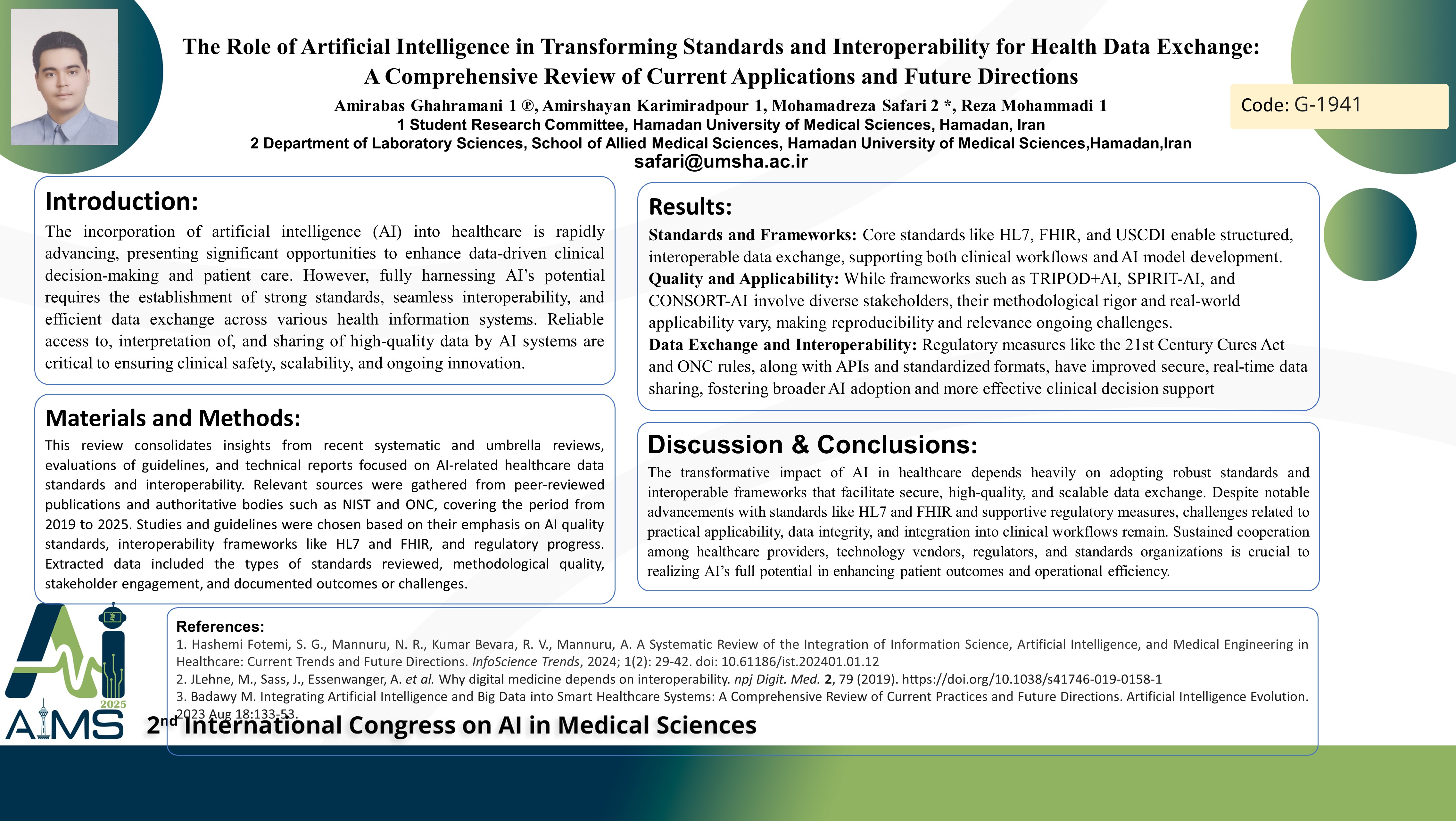The Role of Artificial Intelligence in Transforming Standards and Interoperability for Health Data Exchange: A Comprehensive Review of Current Applications and Future Directions
Code: G-1941
Authors: Amirabas Ghahramani ℗, Amir Shayan Karimiradpour, Mohamadreza Safari *, Reza Mohammadi
Schedule: Not Scheduled!
Tag: Clinical Decision Support System
Download: Download Poster
Abstract:
Abstract
Introduction: The incorporation of artificial intelligence (AI) into healthcare is rapidly advancing, presenting significant opportunities to enhance data-driven clinical decision-making and patient care. However, fully harnessing AI’s potential requires the establishment of strong standards, seamless interoperability, and efficient data exchange across various health information systems. Reliable access to, interpretation of, and sharing of high-quality data by AI systems are critical to ensuring clinical safety, scalability, and ongoing innovation. Method: This review consolidates insights from recent systematic and umbrella reviews, evaluations of guidelines, and technical reports focused on AI-related healthcare data standards and interoperability. Relevant sources were gathered from peer-reviewed publications and authoritative bodies such as NIST and ONC, covering the period from 2019 to 2025. Studies and guidelines were chosen based on their emphasis on AI quality standards, interoperability frameworks like HL7 and FHIR, and regulatory progress. Extracted data included the types of standards reviewed, methodological quality, stakeholder engagement, and documented outcomes or challenges. Results: Standards and Frameworks: Core standards like HL7, FHIR, and USCDI enable structured, interoperable data exchange, supporting both clinical workflows and AI model development. Quality and Applicability: While frameworks such as TRIPOD+AI, SPIRIT-AI, and CONSORT-AI involve diverse stakeholders, their methodological rigor and real-world applicability vary, making reproducibility and relevance ongoing challenges. Data Exchange and Interoperability: Regulatory measures like the 21st Century Cures Act and ONC rules, along with APIs and standardized formats, have improved secure, real-time data sharing, fostering broader AI adoption and more effective clinical decision support Conclusion: The transformative impact of AI in healthcare depends heavily on adopting robust standards and interoperable frameworks that facilitate secure, high-quality, and scalable data exchange. Despite notable advancements with standards like HL7 and FHIR and supportive regulatory measures, challenges related to practical applicability, data integrity, and integration into clinical workflows remain. Sustained cooperation among healthcare providers, technology vendors, regulators, and standards organizations is crucial to realizing AI’s full potential in enhancing patient outcomes and operational efficiency.
Keywords
Artificial Intelligence, Transforming Standards, Interoperability
